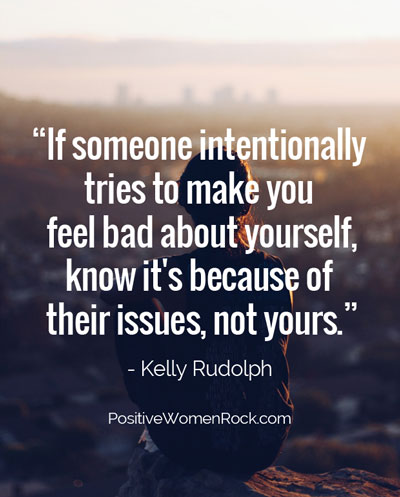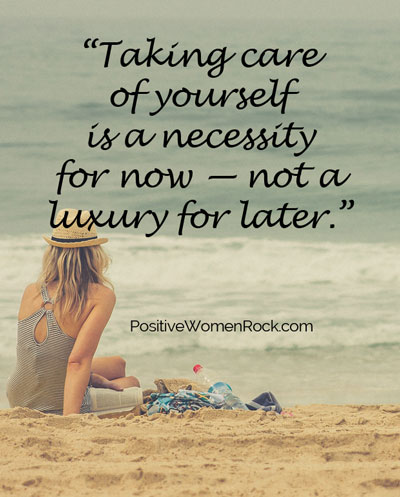If you’ve experienced emotional abuse or any kind of abusive relationship, you know just how traumatic it can be. These emotionally abusive relationships can happen with a romantic partner, coworker, neighbor, parent, child, friend, stranger … anyone.
When people say or do things that cause you to feel bad about yourself, it takes a toll on your entire life. When you feel “less than”, not good enough, or unworthy you develop self-doubt.
But what if your own self-sabotaging behaviors were part of the problem? What if learning how to break bad habits that keep you feeling down could end the cycle of emotional abuse in your life?
Just the doubt alone can lower your self-esteem, stop you in your tracks, and keep you from having the life and healthy relationships you want, which is why learning how to combat it is critical.
What is emotional abuse exactly, and what are the signs of an emotionally abusive relationship?
By definition, psychological or emotional abuse is “a form of abuse, characterized by a person subjecting or exposing another person to behavior that may result in psychological trauma, including anxiety, chronic depression, or post-traumatic stress disorder. It is often associated with situations of power imbalance in abusive relationships, and can include bullying, gaslighting, and abuse in the workplace.”
Some people are abusive on purpose because they have emotional baggage that keeps them defensive and in “attack mode.” They temporarily feel better about themselves if someone else feels bad too, or feels worse than they do. If they sense you are already hard on yourself or have low self-esteem, you are an easy target for them.
It’s important to know this is their issue, not yours, but it can quickly become yours if you allow their abuse to continue. If you don’t, they will move on and find someone else to manipulate.
So often, it takes years to get away from an abuser. Yet afterward, you see they simply moved on to someone else and it was never really about you in the first place.

Some emotionally abusive people are so overly busy, they unintentionally hurt peoples’ feelings because they are going too fast to pay attention. Not an excuse, but a common reason. Some peoples’ personality styles are more on the aggressive side, and they can unintentionally come across as a bulldozer to people in their lives.
Intentional or not, feeling hurt, hurts. And the build-up from it happening, again and again, is destructive to your health, relationships, success, and future. The signs of emotional abuse may not always be easy to spot, but once you can recognize the many types of emotional abuse, you’ll be able to overcome them.
If you’ve been subjected to this kind of abuse for a while, it can become your “norm” and cause you to attract people who may not seem to value you, which in turn, can cause you to stop valuing yourself. The vicious cycle is difficult to escape without courage and confidence. But when you’re in an abusive situation, it can feel like your courage and confidence are locked in a room without a key.
However, there is one key that can unlock what you need to escape — and it can help prevent you from falling into abusive relationships in the future, too.
The answer lies in how you treat yourself because, ultimately, you teach people how to treat you by the way you treat yourself.
Could it be that you are in an emotionally abusive relationship with yourself? If so, you’re in good company with millions of other people but that’s not where you want or need to stay, no matter how good the company is.
Let’s find out if it’s possible you have fallen into this trap and how to break up that abusive relationship for good.
Here are 3 ways you might be emotionally abusing yourself, which can easily attract emotionally abusive relationships.
1. You give yourself no “me time”.
Are you making time for yourself, your sanity, and your emotional well-being by having alone time? Or are you always “doing” for others and leaving no time for yourself? I know it may seem like there just isn’t enough time for it all, but not making time for you means there’s an underlying belief that others are more important than you are.
While it’s wonderful to care that much for people, it’s draining your energy and your self-esteem over the long-run. There’s a pattern of surface-living and allowing other people’s love and acceptance of you to determine your worth. It’s a slippery slope!
2. You engage in negative self-talk.
Do you say things to yourself that would upset or offend you if someone else said the same thing to you? Examples of emotional abuse can even include the negative things you say to yourself. It’s so easy to focus on your flaws or lack of (fill in the blank) when you look in the mirror or fail at something.
And you probably say you know better, but you know what is really scary? Your subconscious mind automatically absorbs everything as the truth. When you say you are stupid, or ugly, or fat, or an alcoholic, it accepts it as your identity. When you say you’ll never be good enough or that you don’t deserve love or will never achieve your dreams, it pulls everything into your path to prove you right.
You can see the power in this negative pattern. It builds on itself daily, sometimes hourly, or minute-by-minute if you are really focused on your flaws. And it’s extra easy to do that when perfection is the standard and not measuring up creates fear and anger. There are some powerful negative emotions to get wrapped up in. Every one of those steals a little (or a lot) more of your emotional peace and self-esteem.
It doesn’t take long to drag you down and separate you from your clarity, courage, and confidence. If you want to know how to build self esteem, then you’ll have to start with you.
3. You have weak personal boundaries.
Do you choose who will be in your life based on your values? Or do you let anyone who knocks on your door of friendship or relationship in? Some people may say, “Your picker is broken,” when choosing the wrong guy to be in a relationship with.
You choose who will prove that your internal view of yourself is true. That means if you put on a happy face like nothing is wrong even when it is, your values of honesty and integrity are being demolished … by you.
With low standards for how you treat yourself, why would standards for people coming into your life be any different? Many people think they should be treated with respect, but they don’t respect themselves. See the disconnect there? It’s another trap that’s ridiculously easy to fall into, and much more difficult to get out of.
That’s because suddenly respecting yourself when you’ve allowed people into your life who don’t is contradictory.
You may want to point fingers at someone else for being emotionally abusive but remember this: Pointing one finger at someone else leaves the other three fingers pointing back at you! Go ahead, point.
So, how do you break up the emotionally abusive relationship you are in with yourself?
How to break common bad habits and negative behaviors that can keep you from healthy relationships.
1. Make time for you.
Make time for you every single day, even if you start with 10-30 minutes and work up to my recommendation of an hour. Respect your me time as a firm appointment just like you would with someone else, only this one is with you.
You are just as important as anyone else on the planet. And even on the days when that seems absurd, it’s still true. It’s also okay if you don’t feel that way just yet. You’ll get there.
So this firm appointment with yourself for me time is the most important appointment you have all day and needs to be treated as such. You can sit by yourself and relax. If family members or other people are involved, make a cute “me time” sign or use a post-it note to let people know you are off-limits for a bit.
You might make time for a bubble bath, or thirty minutes reading an empowering or funny book. You can listen to your favorite music or a powerful guided visualization. Maybe you want to work out, or run, or go for a walk.
Whatever you do during me time, keep in mind it is to honor you. Do something that is relaxing, fun, funny, inspiring, or empowering.
2. Use positive self-talk.
When it comes to self-talk and breaking up that emotionally abusive relationship you’re in with yourself, there are some specific words that will help you tremendously! They will help you understand how to improve self esteem in just a few steps.
Your subconscious mind absorbs everything as if it is the truth. It also “sees” in pictures. Try to picture “not” doing something. Or telling yourself “don’t” (fill in the blank).
Your subconscious mind cannot visualize negatives and grabs the action word and runs with that. So, if you say to yourself, “I’m not going to beat myself up today, even if I fail,” your subconscious mind removes the word “not” and look what is left. You are now telling yourself, “I’m going to beat myself up today even if I fail.”
See how just deleting a couple negative words makes a huge impact? Your statement is most empowering as, “I cheer myself on all day, regardless of what happens.”
Also, the word “try” implies failure and at the very least, doubt. There is so much emotional baggage wrapped around that word it would blow your mind! And most of that baggage was passed down to you through many generations of ancestors.

Negative baggage snowballs throughout your life in an effort to warn you about painful situations in the future. It’s one of your subconscious mind’s protection techniques.
This sounds good at first, but it also has snowballed over generations, gaining size and strength over time, and been passed down to you to keep your ancestral line safe and alive. Emotional snowballs of fear, anger, not good enough, guilt, shame, etc. are deeply embedded and dictate your daily decisions and responses from beneath the surface.
Releasing them is astoundingly quick, and easy. Just replace the “t-word” (try) with something less emotionally destructive like, “give it a shot,” or “practice” (practice always makes you better).
Deleting some negative words from your vocabulary will soon be even more eye-opening than you’ve imagined as you notice how negatively people speak to themselves and others. It’s literally cringe-worthy when you understand the underlying effect like you do now!
Making this change in your life is the most powerful way to revive your self-worth, self-esteem, and self-confidence that is hiding beneath the excess baggage from the past.
3. Pay attention to how you feel.
Lastly, pay attention to how you feel when you are alone and with other people. Notice who and what causes you to feel strong and invincible, and what or who feels weakening. Your goal here is to feel happy, grateful, and energized about life.
If you’ve been feeling bad, it can take a little while to feel good and know you are definitely on the right track with this! You will need to adjust or delete your time around some activities and people and you can do that a little at a time if you need to.
When you do just these three things right now — me time, positive self-talk, and deleting what drags you down — you will feel much more valuable and better about yourself. As you continue, these things will get easier because you will feel and literally see the positive impact on your life.
After all, taking care of you is a necessity for now — not a luxury for later.


